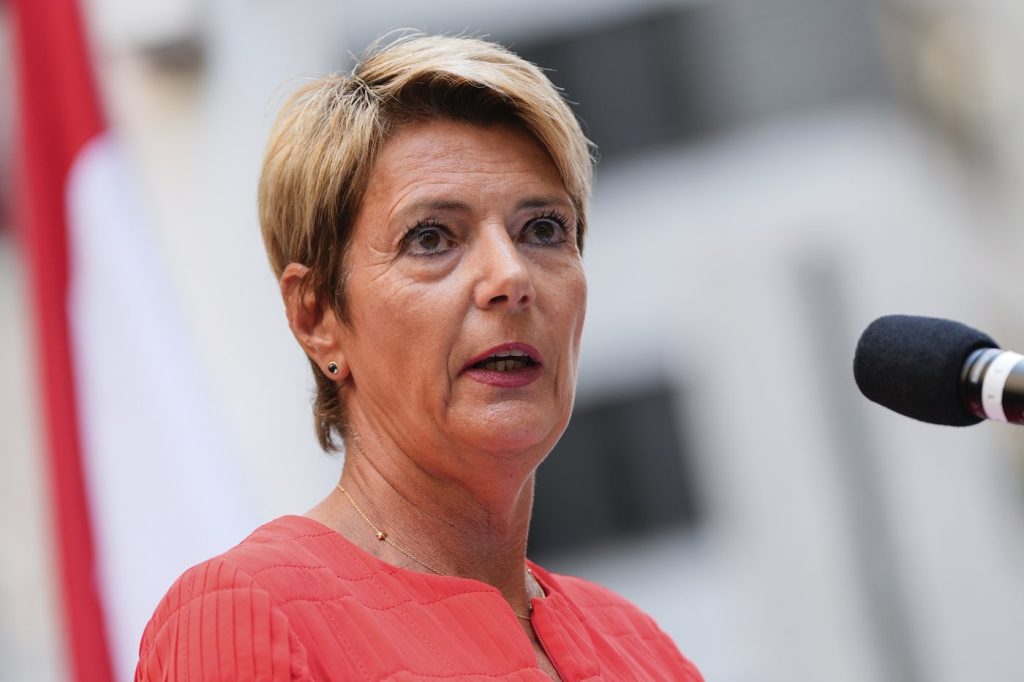GENEVA — Switzerland is identified as one of 15 nations with which the United States intends to engage in “privileged” negotiations aimed at addressing recent U.S. tariffs that have disrupted global markets. Swiss President Karin Keller-Sutter expressed her satisfaction with the discussions held in Washington this week, which included participation in an International Monetary Fund (IMF) conference and a personal meeting with U.S. Treasury Secretary Scott Bessent. Additionally, Keller-Sutter holds the position of Switzerland’s finance minister.
Keller-Sutter revealed in an interview with broadcaster SRF that the U.S. is eager to find a swift resolution regarding tariff issues and Switzerland is included in a select group of 15 countries targeted for these negotiations. While the exact identities of the other nations remain undisclosed, she noted that “the U.S. envisages conducting — I would say somewhat privileged — negotiations and finding solutions” with this group.
Prior to the pausing of some of the Trump administration's most severe tariffs, Swiss imports were slated to incur tariffs as high as 31%, a rate exceeding the 20% tariffs imposed on goods from the European Union. Switzerland is not a member of the EU's 27-country bloc. According to data from the Swiss Embassy in Washington, the U.S. has been the preeminent market for Swiss goods exports globally since 2021. Meanwhile, Switzerland ranks as the fourth most significant export market for U.S. services. The bilateral trade between the two countries reached an impressive $185.9 billion in 2023, as reported by the embassy.
The Swiss president indicated that a memorandum of understanding would be established, allowing for the commencement of negotiations on critical topics. She acknowledged the challenges in navigating U.S. bureaucratic channels but expressed optimism as “we have also been assigned a specific contact person.” Keller-Sutter emphasized that U.S. officials have expressed a clear desire to work toward a solution with Switzerland. Although no definitive timetable has been agreed upon, both sides are inclined to advance quickly, given that “uncertainty is poison for the economy.”
The backdrop of these developments is marked by Trump’s sweeping “Liberation Day” tariffs, set in motion on April 2, which unsettled global stock markets. Following the implementation of these tariffs, Trump had a phone conversation with Keller-Sutter, primarily discussing tariff-related issues. In this context, Keller-Sutter underscored the “important role of Swiss companies and investments” within the U.S. Just hours after their discussion, Trump made a significant announcement to suspend steep new tariffs on approximately 60 countries for 90 days, leading to speculation in some Swiss media that Keller-Sutter’s conversation may have influenced this policy reversal.
Additionally, Swiss Foreign Minister Ignazio Cassis remarked during a visit to Beijing that U.S. tariffs have effectively driven the affected countries into a “sort of coalition” in an effort to negotiate with the United States. In a noteworthy development, Swiss pharmaceutical giant Roche announced plans to invest $50 billion in the U.S. over the next five years, with some of the investment already underway.











